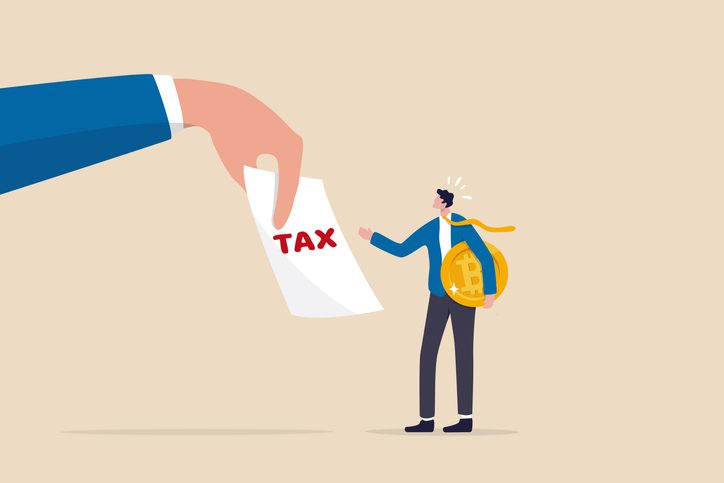Taxpayers Should Answer Crypto Question, Report Digital Asset Income

The IRS has issued a news release reminding taxpayers that they must answer the digital asset question and report all digital asset income when they file their 2023 federal income tax returns. (IR 2024-18, 1/22/2024)
Digital asset question. Generally, the digital asset question for individuals reads: “At any time during 2023, did you: (a) receive (as a reward, award or payment for property or services); or (b) sell, exchange, or otherwise dispose of a digital asset (or a financial interest in a digital asset)?”
This question appears at the top of:
- Form 1040, Individual Income Tax Return
- Form 1040-SR, U.S. Tax Return for Seniors; and
- Form 1040-NR, U.S. Nonresident Alien Income Tax Return.
In addition to the above returns, the IRS said that it has added a digital asset question to the following returns:
- Form 1041, U.S. Income Tax Return for Estates and Trusts
- Form 1065, U.S. Return of Partnership Income
- Form 1120, U.S. Corporation Income Tax Return, and
- Form 1120S, U.S. Income Tax Return for an S Corporation.
Note. The digital asset questions for entities differ slightly from the question for individuals.
What is a digital asset? A digital asset is a digital representation of value that is recorded on a cryptographically secured, distributed ledger or any similar technology. Common digital assets include:
- Convertible virtual currency and cryptocurrency
- Stablecoins
- Non-fungible tokens (NFTs)
Who must answer the digital asset question. Everyone who files Forms 1040, 1040-SR, 1040-NR, 1041, 1065, 1120 and 1120S must answer the digital asset question on their return by checking either the “Yes” or “No” box.
Note. The question must be answered by all taxpayers, not just by those who engaged in a transaction involving digital assets in 2023.
When to answer “Yes.” Generally, a taxpayer must answer the digital asset question by checking the “Yes” box if they:
- Received digital assets as payment for property or services provided
- Received digital assets resulting from a reward or award
- Received new digital assets resulting from mining, staking and similar activities
- Received digital assets resulting from a hard fork (a branching of a cryptocurrency’s blockchain that splits a single cryptocurrency into two)
- Disposed of digital assets in exchange for property or services
- Disposed of a digital asset in exchange or trade for another digital asset
- Sold a digital asset or
- Otherwise disposed of any other financial interest in a digital asset.
When to answer “No.” A taxpayer can check the “No” box if they held digital assets but did not engage in any transactions involving digital assets during the year. According to the IRS the following aren’t transactions:
- Holding digital assets in a wallet or account,
- Transferring digital assets from one wallet or account owned by the taxpayer to another wallet or account owned or controlled by the same taxpayer, or
- Purchasing digital assets using U.S. or other real currency, including through electronic platforms.
Reporting digital asset income. Taxpayers must report all income related to their digital asset transactions. According to the IRS, this includes an investor who sold, exchanged, or transferred any digital assets during 2023. In addition, a taxpayer who disposed of a digital asset by gifting it may be required to report the gift on Form 709, United States Gift (and Generation-Skipping Transfer) Tax Return.
The IRS emphasized that individuals who receive digital assets in return for services must report that income either as wages or as nonemployee compensation on Schedule C, Profit or Loss From Business.
For more information about reporting digital assets, see Checkpoint’s Federal Tax Coordinator ¶ S-1722.
Tags
Categories
Services
- Business Advisory Services (141)
- Audit & Assurance (9)
- Business Valuation (16)
- Estate & Trust (26)
- Fraud Examination (15)
- Litigation Support (11)
- Tax Planning & Compliance (320)




